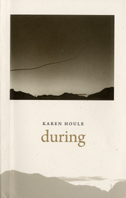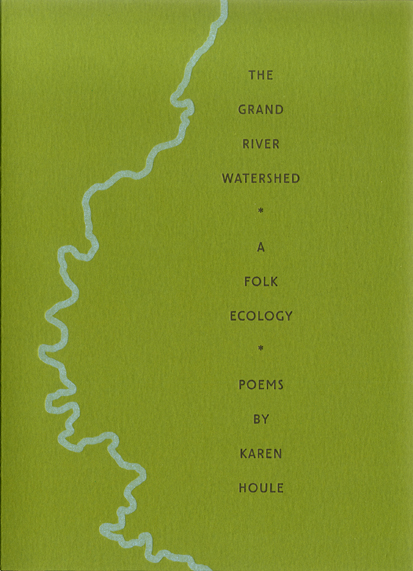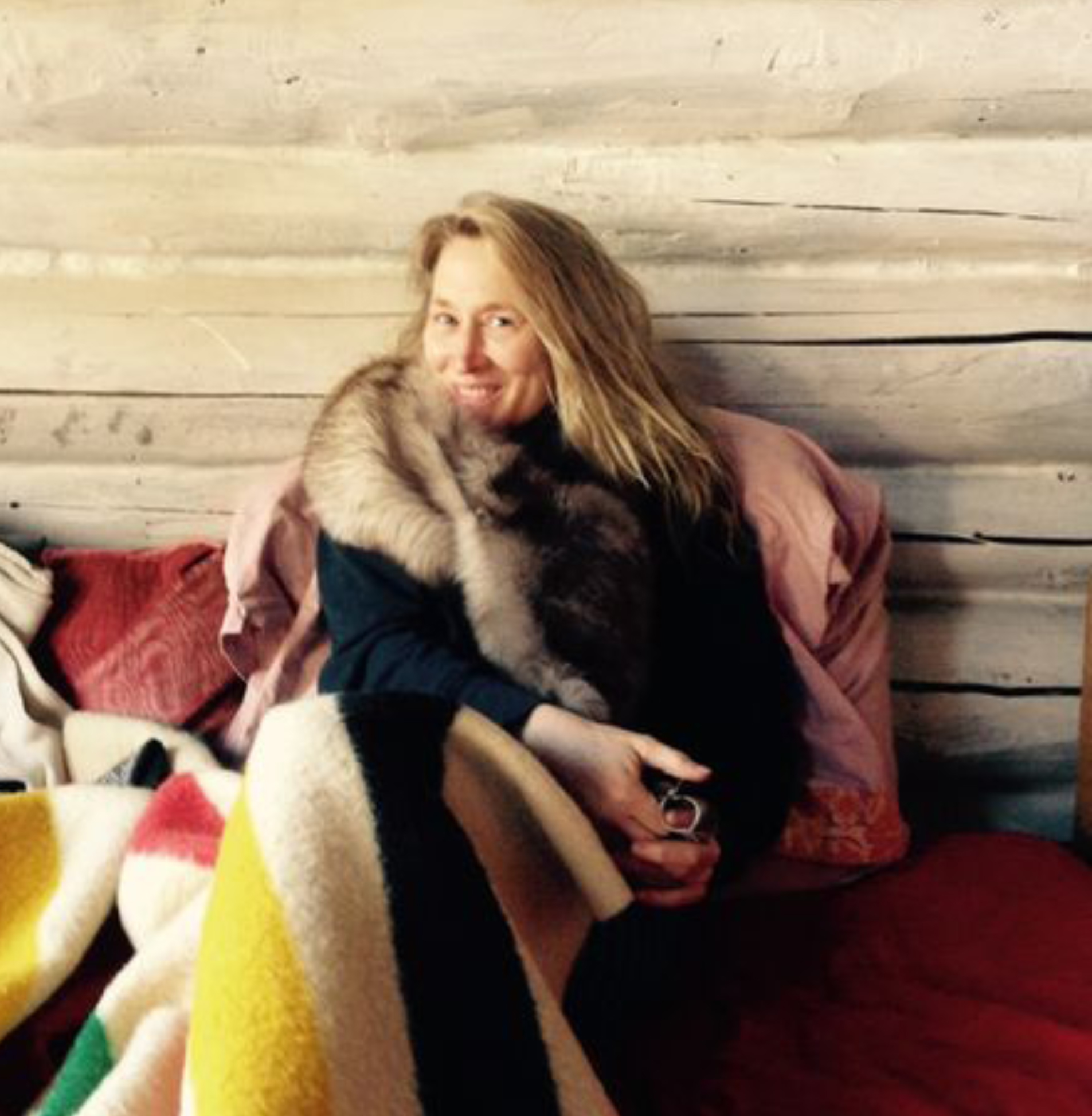
 [ Large Image ] | During Karen Houle 2008 / Poetry / $19.95 9781554470532 / Trade paper / 112 pp Karen Houle’s second book of poetry is a study of continuity, of being in process and of seeing through. With the diverse combination of influences that characterized her debut collection, Ballast (2000), Houle depicts friendships, siblings, marriage, parenting, breakups, work and loss through the oblique angles of biology, geology, forestry and philosophy. Grouped in four conjugations—during, duration, endure, durable—the collection examines the temporal tricks of being in love and having home, of having presence in the here-and-now as well as in time before and after. Houle’s personal experiences inform her observations on ecology—beetles, trees, deer, frost, bees and fish—and these observations in turn inform back. Alongside the carrot peelings and burst vacuum bags of daily life, slower processes tell stories about lifetimes, with shifting shorelines and rock formations charting longer silences and repeated visits to episodes long past. Giving equal reverence to the geologic structures and strata of household mess, During stands apart both for its precise language and imagery, and for its sustained, subtle telling of a life in progress. “In the American Rephotographic Survey,” says Houle, “Mark Klett and other major American photographers went to the exact locales of famous, iconic American landscape photographs, like Eadweard Muybridge’s ‘Falls of the Yosemite from Glacier Rock, No. 36, 1872’, and took another photograph a whole century after the original images were made. The photos reveal that our expectations about what happens during the passage of that amount of time are often dead wrong. In some photos, one can’t even tell that one is at the same starting point: whole frames of reference are gone. In other cases, though, nothing much looked any different. And in still other cases, the natural landscape actually seemed richer, greener, less human-touched than the original sites. In my poetry, I want to do with words the same kind of complexifying: taking a pretty miserable starting point, and spin out, aurally and lyrically, a wider band of possibility of what could follow from that miserable start. Or, alternately, take a placid or banal opening vista and show the processes of decay or creepiness start to colonize that pretty space. When I went to see Klett in Tempe, Arizona, in February of 2007 he showed me 8 × 10 inch black and whites from his recent Time Studies (2006) series. Mark said to me, of this work: I wanted to try to show what a moment looks like, to record the duration of time. I found that to be a pretty fair description of what I think I’m doing in these poems: trying to get the ‘feel’ of time, a sharp piercing moment, a straight stretch of one-lane history, a seemingly endless debacle. I hope that the reader is confounded, contradicted. I hope sometimes she finds her expectations confirmed; comes away from a poem knowing she knows something about how things tend to happen. But also I hope she stumbles, at moments, into an entirely other, unexpected outcome. Caught sound asleep in pessimism, may she wake up, remembering the world around her is also capable of resilience, repair, beauty.” To purchase this title: Add it to your cart | Other Books by this Author |  | The Grand River Watershed: A Folk Ecology Karen Houle 2019 / Canadian Poetry / $19.95 CAN 9781554471843 / Trade paper / 80 pp |

